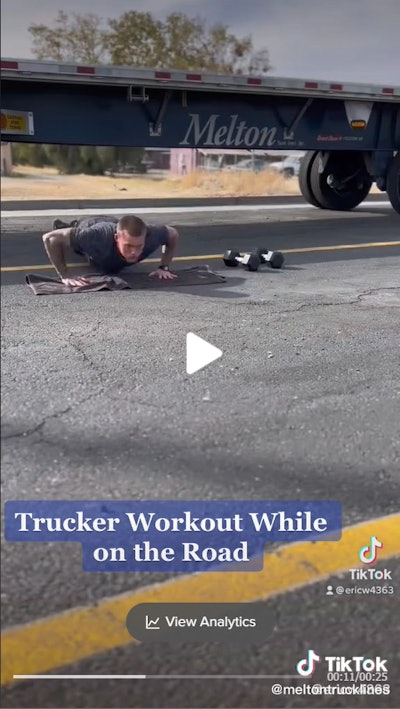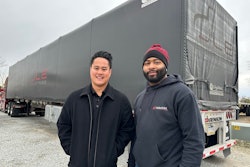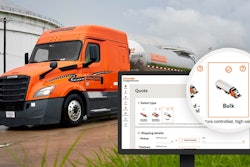CCJ Innovators profiles carriers and fleets that have found innovative ways to overcome trucking’s challenges. If you know a carrier that has displayed innovation, contact CCJ Chief Editor Jason Cannon at jasoncannon@randallreilly.com or 800-633-5953.
Eric Weed hugs a rolled tarpaulin and bends at the knees repeatedly, performing his over-the-road workout routine in a truck stop parking lot. His phone, from a tripod nearby, captures video of his workout with his Melton truck and flatbed trailer in the background as he illustrates his healthy lifestyle as a truck driver.
“The majority of the content I create is fitness and health inspired,” Weed said. “I really enjoy creating videos that will bring value to others, whether it’s from what to eat, how to work out while over the road or even mindset. I enjoy bringing something to the table that simplifies the process.”
 Melton Truck Lines Driver Influencer Eric Weed records himself performing a workout at a truck stop.Melton Truck Lines
Melton Truck Lines Driver Influencer Eric Weed records himself performing a workout at a truck stop.Melton Truck Lines
Other driver influencers include Terrence Small, Chris Womack and LaJames Williams. Small, a road trainer for Melton who showcases a lot of his students' journeys and what they can expect during the road training phase; he also films videos about securement best practices, mistakes to avoid, over-the-road lifestyle advice and more. Womack posts YouTube content about his everyday experiences, from a classic car museum he got to visit over the road, new food he got to try, securement tips and even productivity/miles advice. Williams posts primarily on TikTok and showcases a wide range of OTR lifestyle topics, from walkthrough videos of his meals over the road to a behind-the-scenes look at load processes.
Melton launched its new driver influencer program earlier this year as a new-age method of word-of-mouth advertising, said Kennedy Ruley, digital marketing manager at the Tulsa, Oklahoma-based flatbed trucking company. She said word-of-mouth advertising, which has consistently been one of Melton’s top 10 hiring sources, trumps all when it comes to effectively communicating a message, especially in the trucking industry as drivers meet on the road at truck stops across America. But with the pandemic limiting in-person contact, and that becoming more of the norm post pandemic, her team realized the traditional method of referrals was diminishing.










